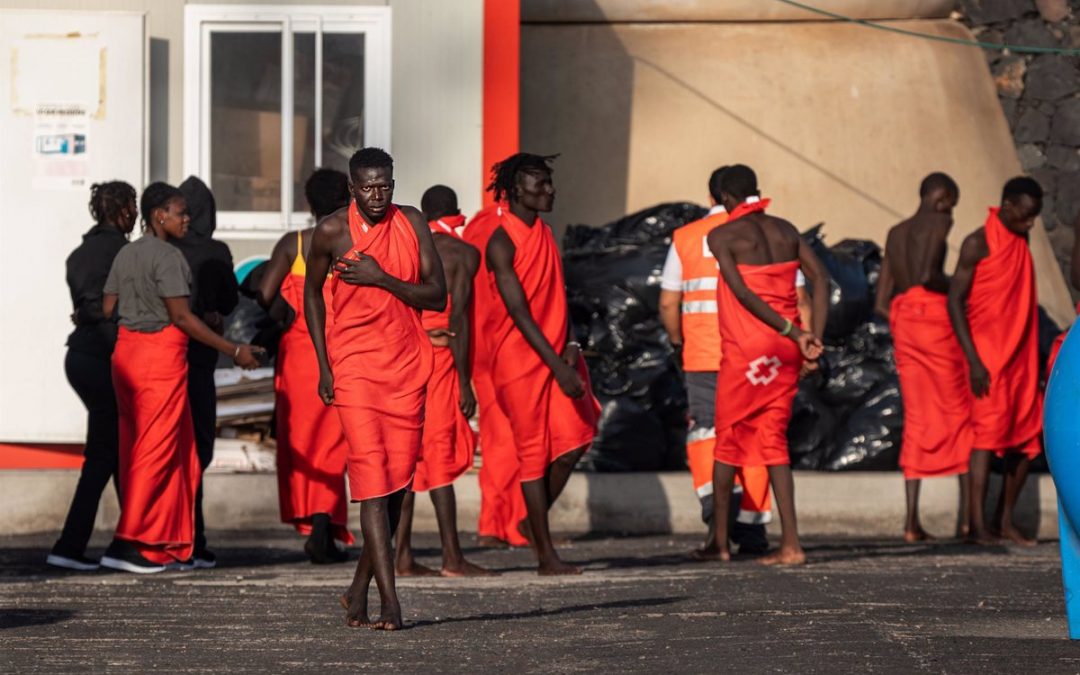The president of the Canary Islands, Fernando Clavijo, has sent a letter to the president of the European Commission, Ursula von der Leyen, inviting her to visit the archipelago and see the migration situation firsthand.
This was announced on Monday by the spokesperson for the Canary Islands government, Alfonso Cabello, who noted that the European Union (EU) “cannot turn its back” on the Canary Islands, where the “deadliest” migration route in the world is located, “with one death every 45 minutes, 55,000 arrivals last year, and 5,200 minors under guardianship.”
Cabello hopes that Von der Leyen will do the same as her visit to the island of Lampedusa last year, which prompted the deployment of a special migration plan, as all conditions are met in the archipelago for special assistance.
“It is important to recognize the case of the Canary Islands,” he pointed out, given that negotiations are starting for the appointment of new European commissioners, migration and asylum regulations need to be developed, and the Canary Islands have other pending issues on the agenda such as Posei, support for the RUP, the revision of CO2 rates for planes and ships, or various state aids.
The spokesperson also announced that Clavijo will appear before the Canary Islands Parliament on September 6th, in an extraordinary session, to update the migration situation in the archipelago and “reaffirm” the migration “common front” of the Parliament, except for Vox.
Cabello, who emphasized the “involvement” of the Vice President of the Canary Islands Government, Manuel Domínguez (PP), in seeking an agreement for the mandatory relocation of migrant minors, reiterated that this is the “only possible solution” for the islands.
Therefore, he hopes that the instructions given by Prime Minister Pedro Sánchez to his ministers to reach an agreement will bear fruit, given that the situation is “critical” and there is no “plan B.”
In this regard, he indicated that immigration should be taken out of the “instability and political noise” of national politics and that minors “should not be a throwing weapon” to achieve a “humanitarian response” from both the State and the EU.
“The Canary Islands can’t take it anymore,” he remarked, emphasizing that Clavijo “has not raised the tone” these days but has simply described reality.
He insisted that the Canary Islands are “completely overwhelmed,” with NGOs, security forces, and society itself “overwhelmed” because there is no longer any capacity, so the desirable outcome, in his opinion, would be for a decree-law to be approved “tomorrow” in the Council of Ministers, which would then be ratified in Congress with contributions from all groups. “It’s time to unblock and advance,” he stated.
Cabello acknowledged also that during August, contacts had been maintained with political groups, mainly the PP, which primarily advocates for establishing a mechanism to make emergency migration-based hires, better fine-tuning financing, and calling a Conference of Presidents, which the Canary Islands hopes will include migration and regional financing on the agenda.
Thus, he highlighted that “what’s important is a solid and rapid response, with broad consensus, because the implementation depends on the autonomous communities, it’s not something that can be imposed unilaterally.”
 go to the original language article
go to the original language article
